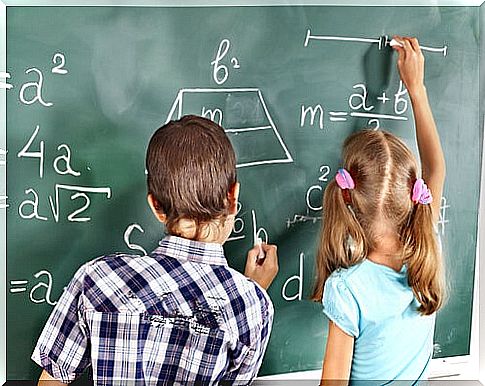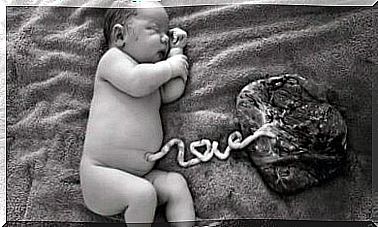Children’s Intelligence Does Not Depend On Their Grades

Most parents congratulate their children when they get good grades in school and react badly to poor ones. In reality, however, these grades do not define the intelligence of the boys at all.
To understand why the grades your children get in school don’t determine their level of intelligence, let’s first look at how intelligence works.
Howard Gardner came to the conclusion that there are various types of intelligence. He claimed that it cannot be measured by traditional IQ tests, but that we can still observe it. It also defines intelligence as the ability to solve problems or create something new that can generate value. Finally, it is important to know the types of intelligence that have been identified to date:
- Logical-mathematical (for logical and mathematical reasoning).
- Linguistic-verbal (allows an adequate use of the word both oral and written).
- Spatial (related to visual space).
- Bodily-kinesthetic (controls and coordinates the movements of the body).
- Interpersonal (allows us to relate to others).
- Intrapersonal (it is the emotional one, it allows us to connect with ourselves).
- Musical (related to music).
- Naturalist (helps to understand the nature around us).
Now that we know a little more about intelligence, we can then analyze the situation of the children. Previously, logical-mathematical intelligence was considered as the reference for understanding whether a child was intelligent or not. However, as mentioned, this is not the only kind of intelligence we can rely on. Therefore, if your child has difficulty in this respect, it does not mean that he is not intelligent!
There are children who are very intelligent and who manage to develop their skills in some specific areas, but not so much in others. This does not mean that one should think that they are stupid or that they have inferior abilities.
You need to give them the opportunity to develop their skills and show what they are good at. You also need to understand that the education we are currently receiving is very structured. Instead, what children need to develop their skills is to break the mold.
When you restrict a child to adhere to a pattern, you deprive him of everything that resides outside that framework. The child will therefore grow as the surrounding environment wants it and following the inputs that are shown to him. Some guys have a tendency to escape from this, but not always with good results.
School education

Since industrialization, human society has equipped itself with a very structured and formalized educational system. There are other options for educating our children, such as the Montessori method.
However, for most people who prefer to opt for a traditional education system, it is important to keep in mind that the label of best or worst pupil that we can put on at school does not determine whether or not we are intelligent.
As parents, it is important to always support our child in his education and understand that a grade, good or bad, does not determine their intelligence.
Remember what we said earlier: there are different types of intelligence.
Do grades determine intelligence in a specific area or not?

Having different types of intelligence allows us to understand the subject we are learning more easily. However, in this sense, memory also plays a fundamental role .
Many of the concepts we learn at school (and later at university) we acquire through our memory. We gain the necessary knowledge, pass the exam, and then continue with our lives.
What does this mean? Well, it means that a child may or may not understand what is being explained to him, but he can also perform very well in an exam without having understood anything. Obviously what he seems to have learned perfectly will be forgotten in no time. This is due to the fact that he didn’t actually understand anything, but simply memorized it.
This is why we shouldn’t trust the grades we get in school: they can mislead us.
The best way to know if a child has understood something is to have them explain it. At that moment you will be able to observe his intelligence. Remember what Gardner says: We can’t measure their intelligence, but we can observe it. If we explain something to him and notice that he understood it quickly, it means that he is particularly gifted in this matter. If you notice that he has some difficulties, do not worry and do not judge him negatively: children learn better if we treat them in a positive way.








